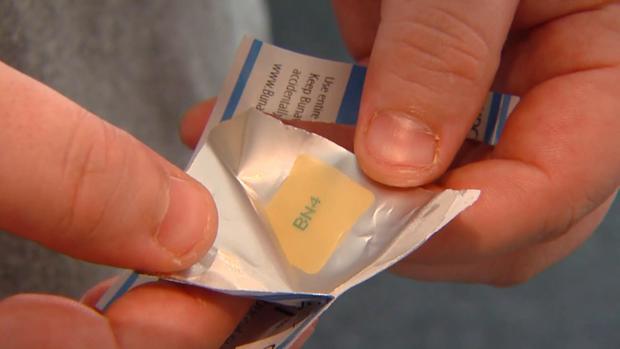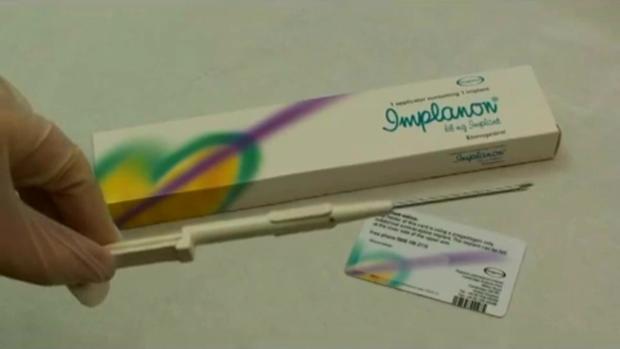Doctors Turn To Implantable Medication For Hard-To-Treat Patients
By Mark Ackerman
AURORA (CBS) - According to the Mayo Clinic, 70 percent of all Americans take at least one prescription. For most people, that means remembering to take a lot of pills. Now some patients are forgoing pills altogether and having medications implanted into their arms instead.
The technique is helping some of the most hardest-to-treat patients like drug abusers and people with mental health disorders who may otherwise have a hard time remembering to take their medication.
Dr. Rob Valuck at the University of Colorado Skaggs School of Pharmacy says there's now a new implantable treatment in the works to help heroin addicts kick their addiction. Valuck says he's very excited about the Food and Drugs Administration's advisory committee's recommendation for approval of the drug Probuphine. It's a new device the size of a match stick which is implanted in the arm to give heroin addicts a consistent dose for six months of an anti-withdrawal medication.
The FDA is expected to make a final decision about approval by May 27.
Valuck says implanting anti-withdrawal medication makes sure the patient actually takes the drug and makes sure the medication doesn't end up on the black market.
Valuck says due to the fear of drug diversion, patients can have to go back and get anti-withdrawal medication frequently.
"Sometimes it's daily, or weekly that they have to get refills," he said.
Implantable medication "offers hope" to mothers like Dawn O'Keefe whose son is recovering from a heroin addiction.
"For us it has been two overdoses and a lot of praying," she said after three years and several different treatment centers.
Now her son is clean with the help of the medication Suboxone. Without it she fears he might relapse.
"I'm always concerned about getting his prescription in time," she said.
The idea of implanting medication isn't limited to treating addiction. It's the same idea behind implantable birth control which has been on the market as a convenient alternative for women for years.
"Women of child-bearing age can do that instead of having to take a pill every day," said Valuck.
Implantables are also being used to treat people with schizophrenia and other mental health issues.
"They can be stabilized and not have psychotic episodes or episodes where they feel fine and fluctuate back and forth," he said.
And the sky is the limit for implantable medication. New applications are currently in development to prevent HIV and to treat chronic pain, diabetes and cancer.
Again, the FDA has not yet approved Probuphine to treat heroin addiction. A final decision is anticipated by the end of May.
Mark Ackerman is a Special Projects Producer at CBS4. Follow him on Twitter @ackermanmark






